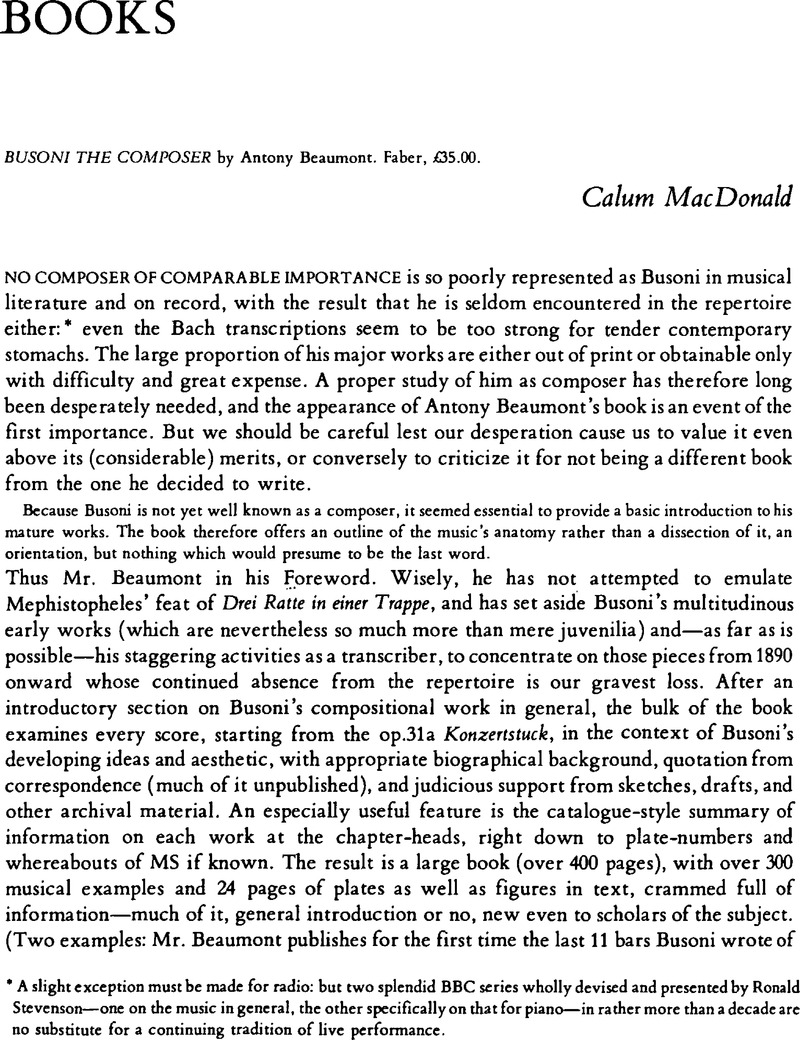No CrossRef data available.
Published online by Cambridge University Press: 04 February 2010

page 47 note * A slight exception must be made for radio: but two splendid BBC series wholly devised and presented by Ronald Stevenson—one on die music in general, the other specifically on that for piano—in rather more than a decade are no substitute for a continuing tradition of live performance.
page 48 note * On which topic, I have never seen it remarked that the furious ostinato accompaniment of the Lied des Mephistopheles (Beaumont Exx. 196,303) is essentially a speeded-up version of the passacaglia theme from Brahms's Fourth Symphony…
page 50 note * Although this is barely represented in Philipp Jarnach's completion of the opera, Mr. Beaumont points out (p.351) that Busoni had already composed the soul-transference music in the marvellous third piece of the Funf kurze Stücke zur Pflege des Polyphonen Spiels. Consideration of Mr. Beaumont's own completion of Faust, which draws on this and many other sources and is clearly going to be controversial, is best deferred until its promised staging in London next year.
page 51 note * What could be more symbolic than the fact that he broke off bis work on the opera at the words ‘O beten, wo die Worte finden?’ (anticipating at once Schoenberg's Moses—‘O Wort, du Wort dass mir fehlt’—and his Modem Psalm—‘und trotzdem bete Ich…’)?